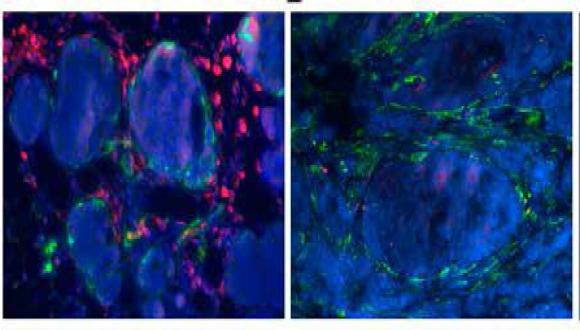Cancer Related Inflammation in Tumor Progression and Metastasis
Prof. Neta Erez, Ph.D.
Department of Pathology
Prof. Neta Erez, Ph.D.
Department of Pathology
The main goal of our laboratory is to uncover stromal pathways that contribute to tumorigenesis and metastasis. In particular, we combine transgenic mouse models of cancer as well as clinical data to study the role of inflammation and cancer-associated fibroblasts in facilitating lung metastasis of breast cancer, and to uncover the role of neuroinflammation mediated by astrocytes in melanoma brain metastasis.
Extensive research has led to the understanding that tumors are more than just cancer cells: stromal cells in the tumor microenvironment play a crucial role in all stages of tumor initiation and progression, and cancer research is no longer focused only on the pathways inside tumor cells, but rather on tumors as multi-cellular organs.
The major cause of cancer mortality is metastasis to distant organs. Currently, metastatic cancers are incurable and available therapies can only prolong life to a limited extent. Therefore, uncovering the mechanisms that facilitate metastasis is an urgent and unmet clinical need. Nevertheless, changes in the metastatic microenvironment that enable the growth of disseminated tumor cells are poorly characterized,
and are the major focus of our research.
and are the major focus of our research.
Expanding our understanding of the early stages of metastatic growth is an essential prerequisite for the discovery of novel target molecules for the development of targeted therapeutics that may prevent, rather than try to cure, metastatic disease.


